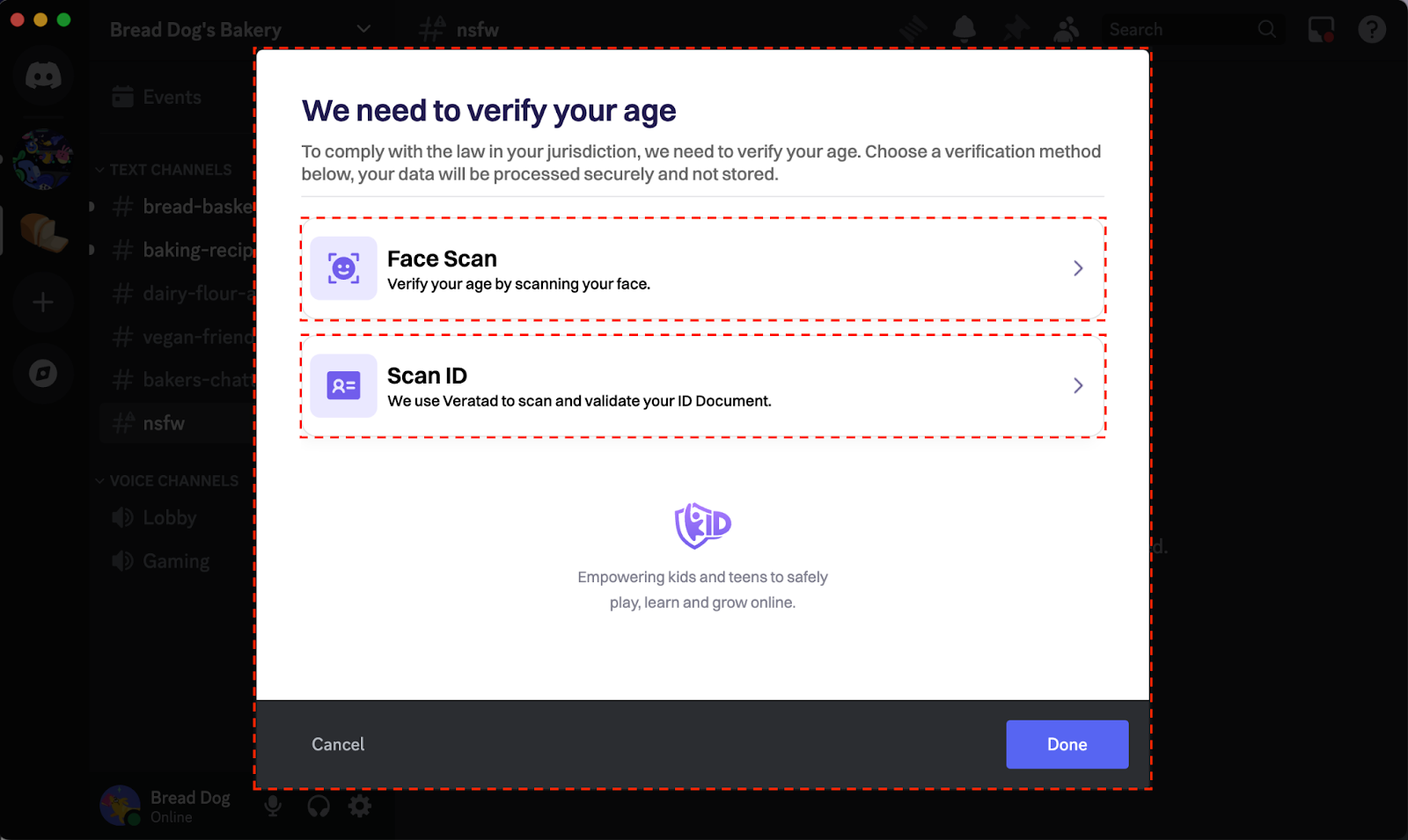In a stark reminder that even well-intentioned security measures can introduce profound vulnerabilities, a system designed to verify user age on Discord has inadvertently become the conduit for a massive data breach. This incident has potentially exposed the government-issued IDs and sensitive personal information of millions, casting a harsh light on the inherent risks of outsourcing critical security functions and the ever-present tension between digital convenience and robust data protection.
The Premise: Age Verification Meets Real-World Data
Earlier this year, the widely used communication platform Discord embarked on an initiative to bolster its age verification protocols, initially piloting the new system in the United Kingdom. This was no mere “click to confirm you`re over 18” checkbox. Instead, it demanded a significantly higher level of proof: users were required to scan and submit their government-issued identification. The stated goal was admirable—to foster a safer online environment by ensuring age-restricted content and interactions were genuinely confined to adults. A noble pursuit, perhaps, but one that necessitated users entrusting the platform with some of their most sensitive personal data.
To manage this delicate and labor-intensive process, Discord, like many modern enterprises, opted for a common strategy: they contracted a third-party service provider named 5CA. This decision, intended to streamline operations and leverage specialized expertise, is precisely where the plot, with an almost poetic inevitability, thickened. The reliance on an external entity to handle such critical data inadvertently introduced a significant, if often underestimated, vulnerability into Discord`s overall security perimeter.
The Breach: From Secure Gateway to Data Sieve
What began as a measure to enhance security quickly unraveled into a full-blown crisis. 5CA, the entrusted custodian of users` government IDs, became the target of a successful cyberattack. Initially, Discord`s public statement indicated that approximately 70,000 users` government-issued IDs might have been exposed. A concerning figure, to be sure, but one that soon paled in comparison to the unfolding reality.
A subsequent report by Cyber Security News painted a far grimmer picture, revealing the true scope of the compromise. The number of stolen government IDs alone reportedly escalated to a staggering 2.1 million. Furthermore, the breach potentially affected around 5.5 million unique users across an astonishing 8.4 million support tickets. This dramatic increase in figures suggests that the compromise extended beyond just those directly undergoing age verification, likely impacting anyone who had engaged with customer support where personal data might have been exchanged. One might wonder if the initial figures were merely a “best-case scenario” or an attempt to downplay the severity, a pattern unfortunately familiar in the chronicles of data breaches.
The hackers, not content with merely exfiltrating data, reportedly attempted to extort Discord, brandishing a veritable treasure trove of 1.5 terabytes of stolen data. This cache allegedly includes usernames, email accounts, IP addresses, and even the last four digits of credit card numbers. While Discord has offered a sliver of reassurance by stating that full credit card numbers and CCV codes were not part of the breach—a small comfort, perhaps, for those now facing the specter of identity theft—the broader implications remain severe. The potential leakage of ID photographs adds yet another layer of vulnerability, making sophisticated phishing and social engineering attacks alarmingly more plausible.
The Paradox of Outsourcing and the Illusion of Security
This incident serves as a potent reminder of the inherent risks when companies choose to outsource critical data handling to third parties. While outsourcing can indeed offer efficiencies and specialized expertise, it effectively extends a company`s attack surface far beyond its immediate control. Discord entrusted 5CA with a pivotal, highly sensitive task, and when 5CA`s defenses failed, it was Discord`s users who ultimately bore the brunt of the fallout.
The notable discrepancy between Discord`s initial reported numbers and the later, vastly larger figures also raises uncomfortable questions about transparency and the immediate understanding of a breach`s full impact. It`s a common, almost predictable, pattern in major cybersecurity incidents: the true extent of the damage often takes considerable time to uncover, yet initial communications invariably shape public perception and trust.
Discord has confirmed it is actively working with law enforcement and is in the process of notifying affected users. While these are standard and necessary protocols, for the millions now grappling with the anxiety of compromised personal information, these actions arrive after the significant damage has already been done. The very system meant to safeguard underage users has now, with a cruel twist of irony, put adult users at substantial and long-lasting risk.
Beyond Discord: A Wider Digital Identity Dilemma
The Discord breach is more than just an isolated incident; it functions as a microcosm of a larger, systemic challenge confronting our increasingly digital world. As more online services necessitate real-world identity verification, the aggregation of sensitive data by central platforms and their network of vendors becomes an irresistible and lucrative target for cybercriminals. The allure of a streamlined verification process, often touted for its convenience, frequently comes at the profound cost of centralized risk and exponentially greater potential for harm.
“In the digital age, we`ve inadvertently created honey pots of personal data, inviting the very threats we claim to protect against. The Discord incident is a siren call for a fundamental re-think of digital identity.”
This event should prompt a critical and urgent re-evaluation of how all online platforms handle sensitive user data, particularly when relying on third-party services. Is the perceived benefit of stringent age verification truly worth the catastrophic risk of compromising millions of government IDs and other personal details? For many, especially those directly impacted by this breach, the answer, post-compromise, will undoubtedly be a resounding “no.” The pursuit of a “safer” online space must not inadvertently become a gateway to unprecedented personal risk.
This article is based on publicly available reports and analyses regarding the Discord data breach involving its third-party age verification provider. Users are strongly encouraged to remain vigilant regarding their personal data, monitor for any suspicious activity, and consider identity protection services if impacted.

